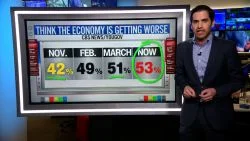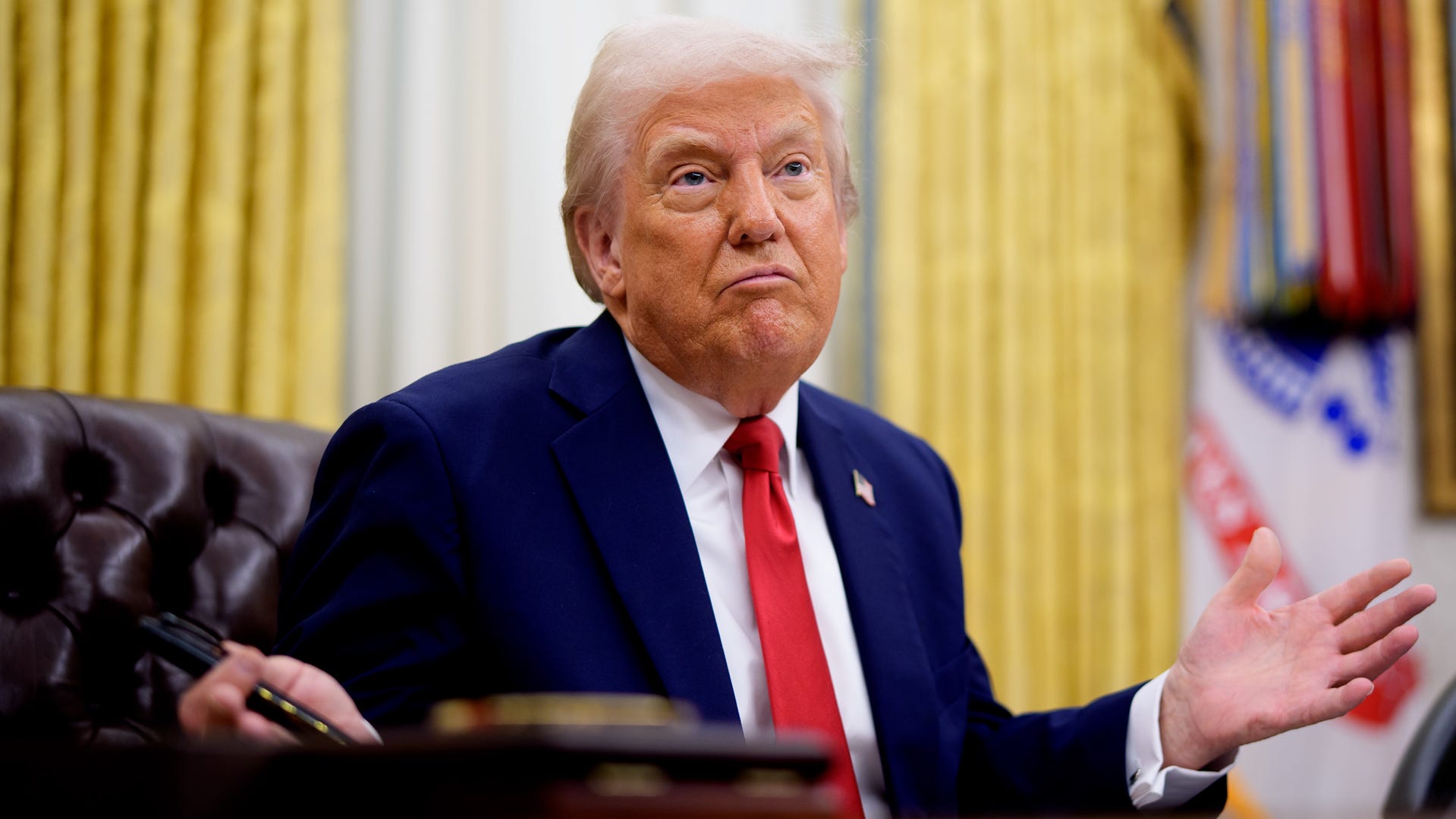
Is Trump Losing His Grip? New Polls Reveal Troubling Trends
In a striking shift of public sentiment, recent polls indicate that former President Donald Trump is facing unprecedented challenges with his approval ratings, particularly concerning his management of the economy and inflation. As the political landscape evolves, questions arise about whether Trump can maintain his support as he enters the next phase of his controversial presidency.
According to a new CBS poll, more than half of respondents—59%—rated the U.S. economy as either "fairly bad" or "very bad." This sentiment has contributed to a decline in Trump's overall approval rating, which slipped from 50% in March to 47% in April. This downturn has coincided with Trump's fluctuating tariff policies and ongoing economic uncertainty.

Despite Trump’s insistence on social media that his tariff policies are "very exciting for America," the reality is starkly different for many voters. Only 44% approved of his management of the economy, down four percentage points from just a few weeks prior. In contrast, 58% of respondents believe that Trump's policies are driving prices higher, reflecting a growing discontent among the populace about their financial well-being.
On April 9, Trump announced a 90-day pause on certain tariffs, a move that is seen by some as an attempt to mitigate the backlash from voters. Yet, his grip on key demographics appears to be loosening; for instance, a late-March CBS poll revealed that 58% of Latino voters disapprove of his job performance, marking a notable shift from earlier positive perceptions.
Analyzing these trends reveals that Trump's approval rating has been slowly declining since his inauguration, reflecting a return to the unpopularity that characterized much of his first term. Historically, Trump has maintained a net negative rating, with positive perceptions primarily limited to his party's base. Poll data indicates that he's losing traction among demographic groups that once rallied behind him, particularly younger voters, whose net favorability dropped from 5% on Inauguration Day to -29% now.
Moreover, a worrying pattern emerges as Trump’s economic policies continue to draw criticism. Polls from both the Economist-YouGov and NBC News illustrate a mounting disapproval of his handling of significant economic issues such as inflation and the cost of living. Trump’s own followers, while supportive of his overall agenda, are starting to express skepticism regarding the practical outcomes of his policies.
As Trump's presidency progresses through another tumultuous chapter, the prevailing question looms: can he reaffirm his dominance over the political narrative? The challenges he faces are not just polling numbers; they speak to a deeper discontent among Americans regarding economic stability and trust in leadership. Whether he can navigate these turbulent waters and reconstruct his image in the eyes of key voter blocs remains to be seen.
Will Trump's latest efforts resonate with voters as he attempts to regain their faith, or is the political landscape shifting beyond his grasp? Only time will tell. As public opinion evolves, it will be crucial to observe how these dynamics play out leading up to the 2024 elections.